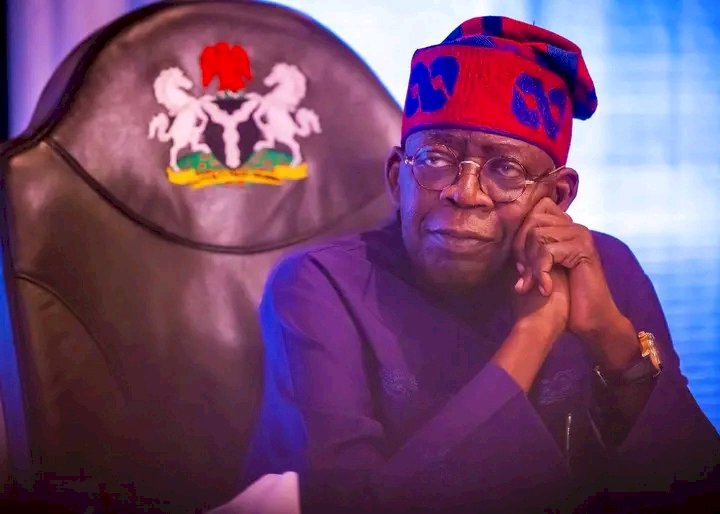JUST-IN:ASUU STRIKE:Incessant ASUU strike causing disruption, irreparable damage to varsity system — Tinubu
Let it be known that the government will neither accept nor condone any shoddy performance in the implementation of the white paper nor the overall mandate of the new governing councils,” Tinubu said.

President Bola Ahmed Tinubu lamented that the incessant strike actions by the Academic Staff Union of Universities (ASUU) have caused disruption, instability, and irreparable damage to the nation’s university system, especially public universities.
The President, however, promised that the governing councils of federal universities, which he earlier dissolved on assumption of office, would soon be reconstituted to allow for the smooth running of the institutions.
Tinubu spoke on Saturday at the 27th Convocation Ceremony of the University of Abuja, held at its Main Campus, Gwagwalada-Airport Road.
The President, who was represented by the Minister of Special Duties and Inter-governmental Affairs, Hon. Zephaniah Jisalo, noted that the incoming governing councils would prioritize the implementation of various visitation panels in the universities.
“Efforts are ongoing to reconstitute the governing councils of the universities to reinvigorate the institutions in line with the renewed hope mandate of my administration.
“When inaugurated, the councils will be expected to commence immediately the implementation of the white paper on the reports of the various panels in their respective universities"
“Let it be known that the government will neither accept nor condone any shoddy performance in the implementation of the white paper nor the overall mandate of the new governing councils,” Tinubu said.
Speaking on the incessant strike actions by ASUU and other staff unions in tertiary institutions, Tinubu warned that such strike actions and sustained industrial unrest have crippling effects on the well-being of any society.
He said he was impressed that the management of the University of Abuja had sustained momentum in all its operations in appreciation of his administration’s modest efforts to reposition the nation’s political economy, thereby restoring the hopes of millions of Nigerians.
He also commended the Trade Union Congress (TUC) and Nigerian Labour Congress (NLC) for their maturity, cooperation, and understanding that led to the resolution of the threat to embark on a nationwide strike last week.
He noted that universally, strikes were accepted as legitimate means deployed by workers in fighting for their welfare and better conditions of service and that his administration was conscious of this fact.
“However, our administration would like to caution that incessant strikes and sustained industrial unrest have crippling effects on the wellbeing of any society.
“Our public universities are living testimonies of the disruption, instability, and irreparable damage caused by strikes to the tertiary education sector.
“Indeed, the humongous cost of unending industrial actions on the nation’s overall wellbeing is unquantifiable. That is why the government is deeply appreciative of all those who have contributed to the resolution of the last prolonged industrial action in the nation’s public universities.
“We also commend the staff unions for their display of patriotism and sacrifice by calling off the strikes. The resolution of the crisis proved eloquently that no challenge is insurmountable when all are motivated by a shared vision, commitment, and unity of purpose,” Tinubu said.
He said that he was determined to ensure that Nigerians, particularly students, their parents and guardians, and all stakeholders in the education sector, were never subjected to the harrowing experience of the unnecessary closure of tertiary institutions.
“In this regard, I urge all managers and other stakeholders in the education sector, especially tertiary institutions, to join forces with the government to ensure that this never happens again,” he said.
He, however, regretted that there were setbacks and crises, particularly in the management of succession in some of the nation’s universities.
“By the autonomy status granted through the Universities Miscellaneous Act, there are clear guidelines on the appointment of principal officers of universities. Yet, some universities disregard or abuse the freedom that the unions fought strenuously for decades to achieve.
“Without mincing words, the government has not been impressed by the inelegant deployment of undue politics of exclusion, primordial considerations, etc., in the process of selection and appointment of vice-chancellors and other principal officers, as well as the manner of appointing staff into leadership positions,” he said.
Tinubu also warned that the government alone could not shoulder the responsibility of funding education in Nigeria, nor can the over-reliance on the government, which has been the practice in the past, be sustained.
“And the situation has been exacerbated by the harsh realities of recent global and national economic downturns, complicated by the COVID-19 pandemic.
Therefore, the time has come for all stakeholders in the education sector, including the students, staff, unions, parents and guardians, and the public and private sectors, to coalesce around the consensus that education is the responsibility of all and sundry,” he added.
He, however, assured the unions that henceforth, any agreements and memoranda signed between them and the government would be implemented to the letter, in addition to the regular funding by the government through appropriation and special interventions.
The Vice-Chancellor, University of Abuja, Prof. Abdul-Rasheed Na’Allah, said earlier in his speech that the University of Abuja graduated a total of 7034 students for this year’s convocation.
He disclosed that out of this number, 6044 would be graduating with first degrees, 270 with postgraduate diplomas, 613 with master’s, and 107 with doctorate degrees.
“Out of those graduating with first degrees, 39 have first class, 1581 second class upper division, 3702 second class lower division, 573 third class, and 149 pass.
“It is equally important to note that among the students graduating today are 87 of the first set of students from the University of Abuja Business School with a Master’s in Business Administration (MBA) degree,” Na’Allah said.






















